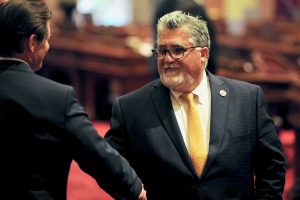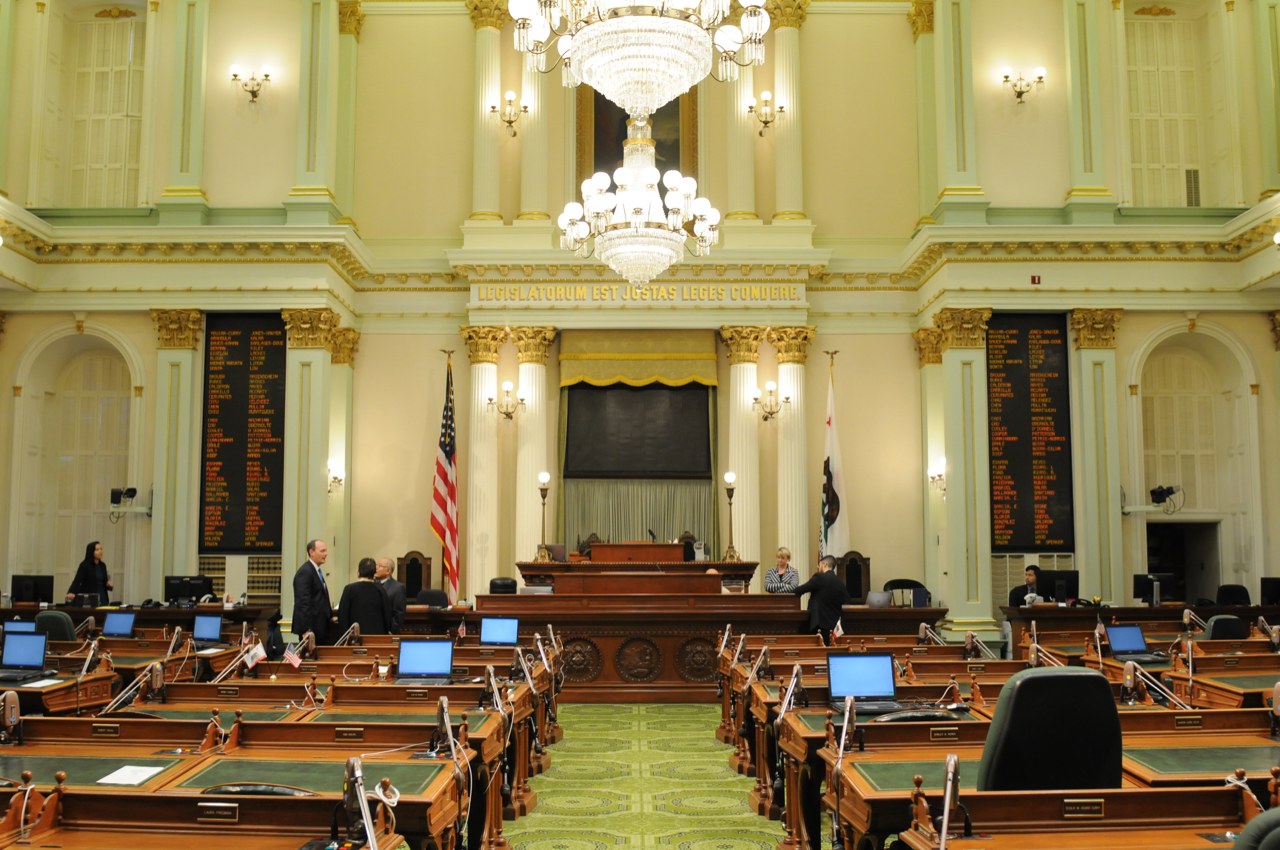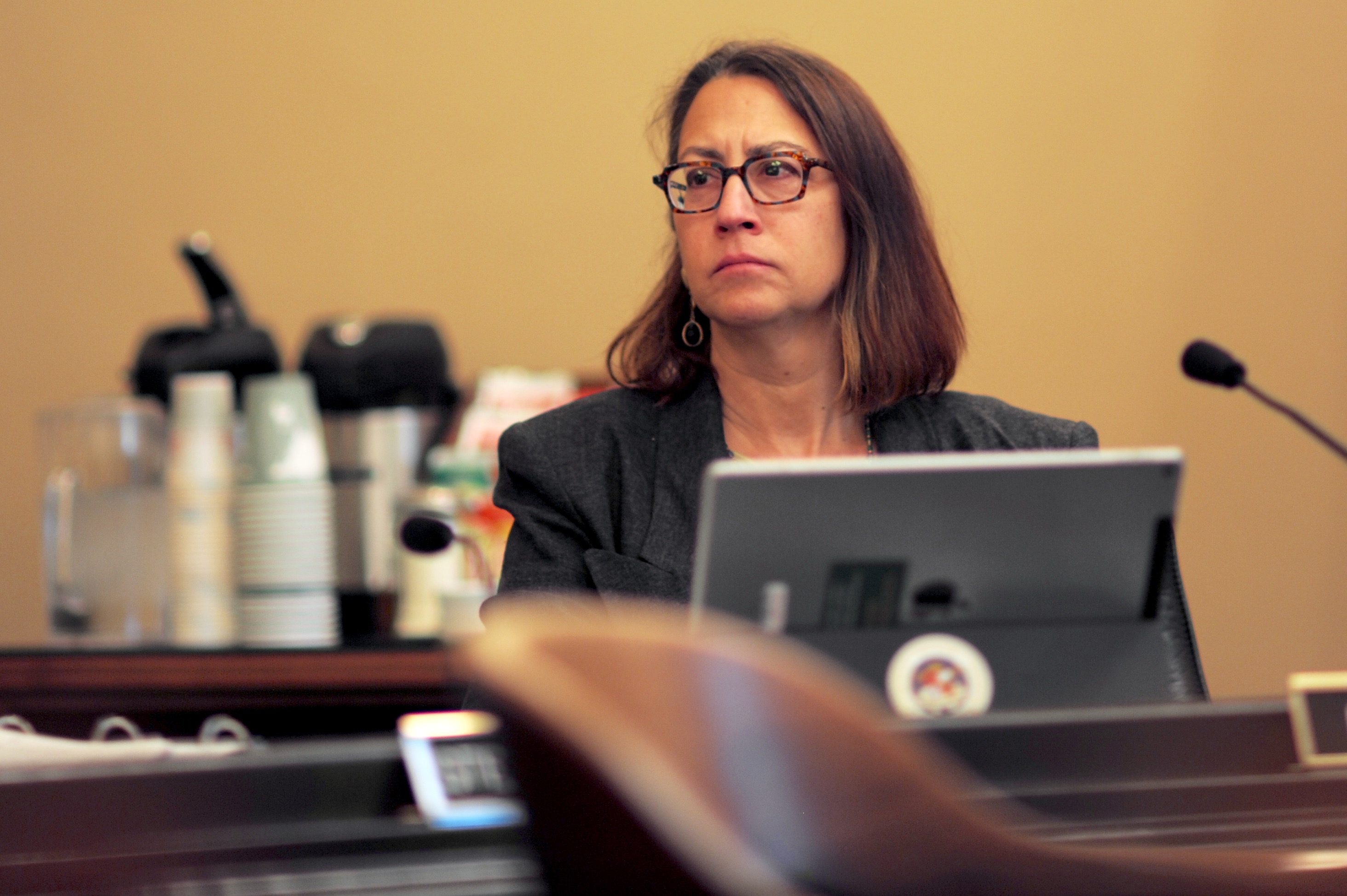
(Kevin Sanders for California Globe)
New Assembly Rule Could Kill Democrats’ and Bipartisan Bills Before Committee Votes
Bipartisan bills to lower minimum franchise tax on small business may meet this new fate
By Katy Grimes, May 13, 2019 2:14 pm
Two California lawmakers are proposing bipartisan legislation to help small businesses succeed, and to encourage investment growth in California by lowering the minimum franchise tax. However, a new rule in the Assembly, which allows committee chairmen and women to refuse to hear a bill they don’t like, even before having a hearing and receiving votes, could kill these bills.

Sen. Anthony Portantino (D-La Canada-Flintridge) and Assemblyman Steven Choi (R-Irvine) have authored nearly identical bills to lower the minimum franchise tax for small businesses and corporations having less than $15 million in gross receipts.
This is significant because state law imposes a franchise tax on all corporations doing business in California equal to 8.84 percent of the corporation’s taxable income attributable to California. State law also imposes a Minimum Franchise Tax (MFT) of $800 on all corporations that incorporate under the laws of the state, or are doing business in the state.
“Since my time in the Assembly, I have tried to find ways to support small businesses in California and I am very happy that this bill is moving forward,” said Sen. Portantino. “By eliminating the minimum tax responsibility, California will send a strong message of support to small business owners. Small businesses are an ever-increasing important component of a successful economy and we need to encourage their success.”
However, even a good bill authored by a Senate Democrat is in jeopardy once it hits the Assembly under this rule change. Senators particularly could be in for a shock when their bills make it to the Assembly, only to be killed before ever being set for hearing, since the Senate has kept its rules in place governing bill procedures during the committee process. Numerous Assembly bills authored by Democrats have already been killed by Assembly committee chairpersons under this rule change.
“Assemblywoman Shirley Weber of San Diego, whose legislation to change the formula for funding public schools so that more money would be devoted to student groups that post the lowest test scores was one of several measures related to the funding formula that were not heard in the education committee,” CalMatters reported. “The new way, she said, amounts to ‘a one-person decision.’”
Opponents Say Business Tax Credits Hurt State’s Tax Revenue
Opponents of Portantino’s and Choi’s bills claim the General Fund will be reduced by more than $100 million within the first three years.
The opponents are a coalition of labor unions formed ostensibly to review legislation which negatively impacted Proposition 98 mandatory public school funding. These groups believe that tax credits extended to businesses reduce overall tax revenues, thereby cutting education funding.
Passed by voters in 1988, Prop. 98 requires a minimum of 40 percent of California’s general fund spending is mandated to be spent on K-12 education, and the actual percentage of the general fund spent on education is over 50 percent.
Proposition 98 amended the California Constitution to mandate a minimum level of education spending based on three tests:
- Test one, applicable only from 1988 to 1989, required spending on education to make up 39 percent of the state budget.
- Test 2, applicable to years of strong economic growth, requires spending on education to equal the previous years spending plus per capita growth and student enrollment adjustment.
- Test 3, used in years of weak economic growth, guarantees prior years spending plus adjustment for enrollment growth, increases for any changes in per capital general fund revenues, and an increase by 0.5 percent in state general funds.
The 40 percent figure was actually only used in 1988 and 1989. However, if the Legislature had not authorized changing the formula during recessions and strong economic times, it is estimated that education spending would be up by more than $1 billion total under the 40 percent requirement under Prop. 98.

Opponent of AB 250, the California Tax Reform Association, says, “To date, no proponent of such a measure has been able to present any evidence that the [minimum franchise tax] is a problem of business formation or that it should be lowered. In fact, of the 14 Measures on this or similar introduced since 2011, none have passed their house of origin.”
This coalition of labor groups believe education has lost revenue through various business tax credits. They are opposing Choi’s AB 250, but have not expressed official opposition to Portantino’s SB 349.
The bill analysis for AB 250 explains:
Opponents of this bill state “As this measure is anticipated to reduce the General Fund by over $100 million within the first three years, the state legislature must weigh the benefits of such a measure with its costs. To date, no proponent of such a measure has been able to present any evidence that the [minimum franchise tax] is a problem of business formation or that it should be lowered. In fact, of the 14 Measures on this or similar introduced since 2011, none have passed their house of origin.”
California has the highest small business failure rate, with three out of four small businesses failing in the first two years. Yet, as Portantino says, “California’s small businesses account for a significant portion of the state’s employers and about 45 percent of our state’s exports.”
- Energy Company Warns CARB on ‘The Stark Reality’ Driving In-State Refining Capacity to Zero of CA’s Remaining 7 Refineries - February 28, 2026
- CAL DOGE Investigation: $1 BILLION California Solar Program Instead Funded Democrat Voter Registration & Activism Efforts - February 27, 2026
- Could President Trump End the Income Tax? - February 26, 2026




